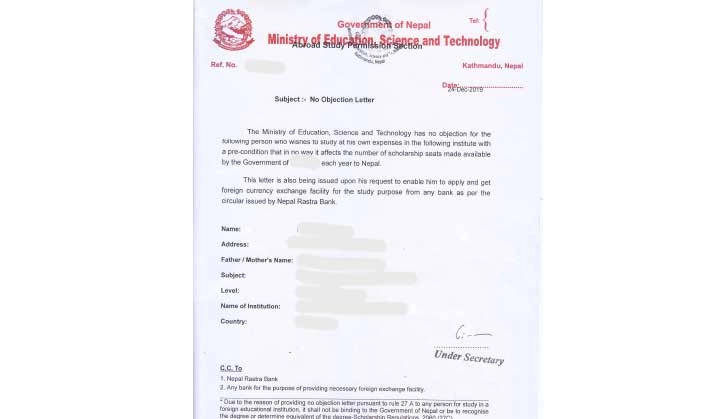
International Applicants to U.S. Graduate Schools: A Comprehensive Guide
Canada is a popular destination for international students, including those from Nepal, seeking high-quality education and diverse cultural experiences. With its world-renowned universities and welcoming environment, many Nepali students aspire to study in Canada. However, securing a student visa can be a complex process that requires careful preparation and attention to detail. In this blog, we’ll explore the essential steps and tips for Nepalese students to successfully obtain a Canadian student visa.
1. Understanding the Canadian Student Visa
The Canadian student visa, officially known as the Study Permit, allows international students to reside in Canada while pursuing their studies. To be eligible for a Study Permit, students must:
Be Accepted by a Designated Learning Institution (DLI): Ensure that you have an offer letter from a DLI in Canada, as only institutions on the approved list qualify.
Prove Sufficient Funds: Demonstrate that you have enough financial resources to cover tuition fees, living expenses, and return travel.
Intend to Leave Canada After Studies: Show that you plan to return to Nepal upon completing your studies, unless you qualify for a work permit or permanent residency.
2. Preparing for the Application
Receive Your Offer Letter: Before applying for a Study Permit, you must receive a formal offer of admission from a DLI. This document is crucial for your visa application.
Gather Required Documents: Prepare the necessary documentation for your visa application, including:
Valid Passport: Ensure your passport is valid for the duration of your stay in Canada.
Proof of Acceptance: Your offer letter from a DLI.
Proof of Financial Support: Bank statements, affidavits of support, scholarship documents, or any other evidence that demonstrates your ability to cover expenses.
Academic Transcripts: Official transcripts and certificates from your previous education.
Language Proficiency Test Scores: If applicable, include scores from tests like IELTS or TOEFL.
Medical Exam: Some students may need to undergo a medical examination by an approved physician.
Police Clearance Certificate: A police certificate may be required to prove that you have no criminal record.
Complete the Application Form: Fill out the Study Permit application form (IMM 1294) accurately. Ensure all information is correct and complete to avoid delays.
3. Applying for the Study Permit
Submit Your Application: Applications can be submitted online through the Immigration, Refugees and Citizenship Canada (IRCC) website or via a paper application. Online applications are generally faster and more convenient.
Pay the Application Fee: The fee for processing a Study Permit application is required. Check the current fee on the IRCC website and ensure timely payment.
Biometrics Appointment: In some cases, you may be required to provide biometrics (fingerprints and photo). Follow instructions from the IRCC for scheduling and attending the biometrics appointment.
4. Interview and Processing
Prepare for an Interview: In some cases, you may be asked to attend an interview at the Canadian Embassy or Consulate. Be prepared to discuss your study plans, financial situation, and ties to Nepal.
Wait for Processing: Visa processing times can vary based on your location and the volume of applications. Check the status of your application regularly and be patient during this period.
Receive Your Study Permit: If approved, you will receive a Study Permit that outlines your conditions of stay in Canada. Ensure you review the details carefully.
5. Tips for a Successful Visa Application
Provide Accurate Information: Ensure all information and documents are truthful and accurate. Any discrepancies can lead to delays or rejections.
Demonstrate Financial Stability: Clearly show that you have sufficient funds to cover tuition and living expenses. Include detailed bank statements and financial documents.
Strong Ties to Nepal: Prove your intent to return to Nepal after your studies. This can be demonstrated through family connections, employment prospects, or property ownership.
Seek Professional Guidance: If you’re unsure about any aspect of the application process, consider consulting with an immigration consultant or education advisor who specializes in Canadian student visas.
Stay Informed: Regularly check the IRCC website for updates and changes in visa requirements or procedures.
6. Post-Visa Considerations
Plan Your Travel: Once you receive your Study Permit, make travel arrangements to Canada. Ensure you arrive before the start date of your program to complete any necessary orientation or registration.
Accommodation and Settling In: Arrange for housing in Canada and familiarize yourself with your new environment. Universities often offer resources and support for international students to help with settling in.
Orientation Programs: Attend any orientation programs offered by your university to help you adjust to academic life and connect with other students.
Conclusion
Securing a student visa to study in Canada as a Nepalese student involves careful preparation, attention to detail, and adherence to specific requirements. By understanding the process, gathering the necessary documents, and following the outlined steps, you can enhance your chances of a successful application. Canada offers a rich educational experience, and with the right preparation, you can embark on a fulfilling academic journey in one of the world’s most welcoming countries.
For personalized assistance and expert guidance on the Canadian student visa application process, consider reaching out to an education consultancy. They can provide valuable insights and support to ensure a smooth and successful transition to studying in Canada. Your dream of studying in Canada can become a reality with the right preparation and support.



.jpg)
.jpeg)
.jpg)